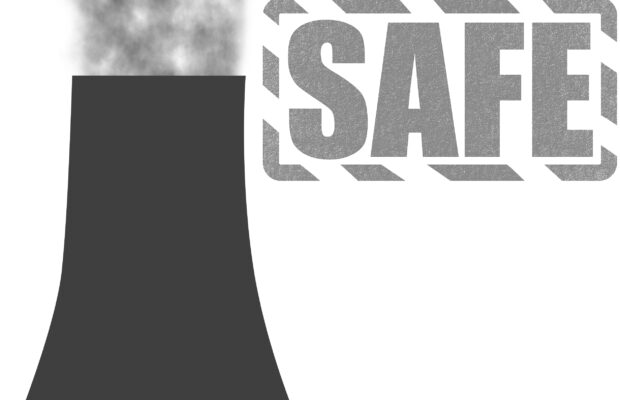The fear of nuclear power isn’t grounded in reality

In the current day, many people are worried about the effects that energy sources like coal, fossil fuels and fracking are having on the environment. Experts are scrambling to find alternative sources of energy which are environmentally friendly. Some such sources include solar energy, wind energy and water energy. However, there is one choice that we should be investigating further. This power source is efficient, recyclable, relatively cheap and if done properly, safe: nuclear energy.
Many people probably winced upon reading that. Unfortunately, people often associate nuclear power with nuclear weapons, or they think of disasters like Chernobyl and Fukushima and think that nuclear power is risky and unstable. However, This is because most people do not know the context behind these events. In Chernobyl, the meltdown of the reactor occurred when personnel decided to conduct an unauthorized experiment, and turned off the warning system and removed the control rods from the reactor. In the case of Fukushima, the meltdown was caused by a natural disaster. The Fukushima power plant was outdated and thus did not have adequate protection measures in place.
In terms of cost, nuclear energy appears expensive on the surface, which causes some people to think that we should focus exclusively on renewables. While building a nuclear power plant does have a very large up-front cost, it makes up for this in the efficiency it provides once completed. According to a 2019 study conducted by the Organization for Economic Cooperation and Development, grid-level system costs for renewables range from eight to 50 dollars per megawatt hour, while grid-level system costs for nuclear energy are typically around three dollars per megawatt hour.
Nuclear power can provide many benefits that most people would not even think of. While many are understandably concerned about nuclear waste, one of the waste products that reactors produce, Americium-241, is used in smoke detectors, and radioisotopes have been used increasingly often in medical procedures in order to remove tumors without performing dangerous surgery. According to the World Nuclear Association, 10,000 hospitals across the world use radioisotopes, and 90% of the procedures are for diagnosis. 40 million procedures are executed per year using the radioisotope of technetium-99 alone.
There are many misconceptions surrounding nuclear energy, but it is still a solution that should be researched further.


